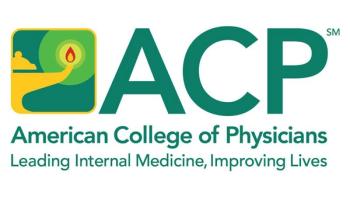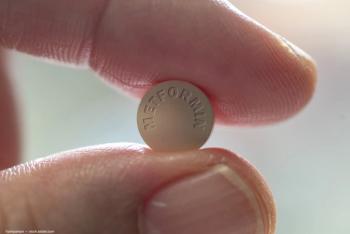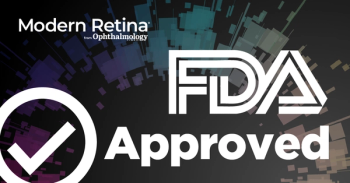
Monte Carlo simulation indicates positive outcomes for anti-VEGF therapy in severe NPDR
Dr. Quan Dong Nguyen reviews a Monte Carlo simulation that showed evidence that treating severe NPDR with anti-VEGF therapy garners positive results.
Quan Dong Nguyen, MD, discusses the Monte Carlo simulation model that demonstrates the scalability of intravitreal anti-VEGF therapy for severe non-proliferative diabetic retinopathy (NPDR) before the disease progresses to proliferative diabetic retinopathy (PDR).
Dr. Nguyen is a professor of ophthalmology at the Byers Eye Institute at Stanford University School of Medicine.
Video transcript
Dr. Nguyen: Yes, we have looked at the question of how intravitreal anti-VEGF therapy can help to decrease the significant complication that non-proliferative diabetic retinopathy [NPDR] progress to proliferative diabetic retinopathy [PDR], given the fact that PDR has many complications that can be avoidable, preventable by early treatment.
So, in our study, we cleverly start out with a group of real-world patients, of about 78,000 patients, that have different stages of diabetic retinopathy from non-proliferative—mild, moderate, severe—to proliferative. And then from there, we use a model called Monte Carlo model, simulation model, where we make into a model of about 2 million people from that aspect. So we can now see the big effect. And remarkably, we see some very similarity.
Throughout the last decade or so there have been numerous studies that demonstrate the potential benefit of intravitreal anti-VEGF therapy in decreasing the complications that occur with proliferative diabetic retinopathy when NPDR progress to PDR. We have the RISE and RIDE study, which I chaired several years ago, we also have the PANORAMA study.
The RISE and RIDE investigate ranibizumab; PANORAMA investigates aflibercept. And then we also have Protocol W from the DRCR. And in each of these studies, in each of this protocol, it demonstrates to us that early treatment in a patient with severe NPDR can lead to remarkable reduction in complication that lead to PDR.
So for example, in the RISE and RIDE is about 51.7% or so reduction in the risk of progression to complication. In the PANORAMA with aflibercept is similar 51.5%. And then when we look at the overall simulation model, remarkably, it's come out just around that area to about 50% or so. It clearly demonstrates that if you were to treat patients with severe NPD early, you can decrease the risk of PDR events just like vitreous hemorrhage, neovascularization, and so on in that aspect. So that's very helpful.
The other aspect we also looked at was the incidence of severe visual loss—so blindness. In the United States, we define blindness at vision is 20/200 or worse, and so many patients with PDR also had severe loss of vision. And we also looked at this aspect, and we indicated that yes, in fact, when we treat patients with NPDR and not let them progress to PDR, we'd reduce down by at least 57-58% reduction in number of patient that will develop severe blindness.
So clearly from different aspects—from just the regular complication of PDR to severe vision loss due to blindness level—early treatment does help. And we like to treat it when they get to, let's say severe stage of NPDR.
Certainly, we don't advocate treating of any patient with NPDR because that would not be appropriate nor practical. But if the patient has reached to the stage of severe NPDR, then we definitely believe that there's strong evidence, a lot of them come from very well-designed study. And now with this Monte Carlo model that we have done, they've shown that.
And by the way, I’d like to recognize also our colleague with this: Dr. Andrew Moshfeghi, from University of Southern California and Dr. Jennifer Lim from the University of Illinois, near in Chicago, along with Steve Sherman, and our colleagues over at Regeneron who have worked closely with us to develop this model and to answer this very important questions.
Note: This transcript has been lightly edited for clarity.
Newsletter
Keep your retina practice on the forefront—subscribe for expert analysis and emerging trends in retinal disease management.




























